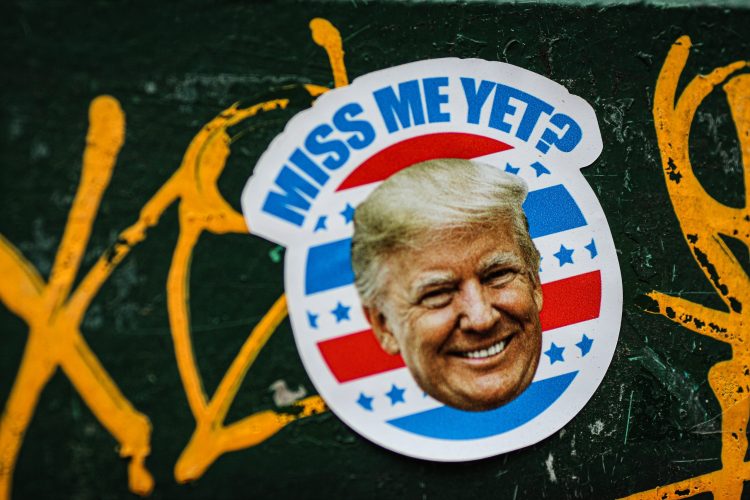- 17 Jun, 2023
- 0
- Mel Gurtov
- Mel Gurtov
Trump Indicted
Trump Indicted
by Mel Gurtov
867 words
I dedicate this commentary to the memory of my friend and former colleague, Daniel Ellsberg, who passed away Friday. He and I were among the authors of the top-secret Pentagon Papers, which Daniel released to the public in hopes of ending the Vietnam War. His powerful voice for peace will be greatly missed.
The Indictment
The indictment of Donald J. Trump is a matter of national security, not just American politics. To read the many charges against Trump is to be reminded that there are real secrets of state—maybe only five percent of all classified material, as Dan Ellsberg liked to say, but still documents that, in the wrong hands, can result in foreign policy disasters, loss of life, and threats to US military and civilian personnel on duty.
Presidents have access to current and prospective military operations; to the nuclear weapons codes; to ongoing spy operations; to intelligence assessments about foreign governments and their leaders; and to the latest weapons research.
Trump took documents that fall within the five-percent category. The federal indictment of Trump states:
“The classified documents TRUMP stored in his boxes included information regarding defense and weapons capabilities of both the United States and foreign countries; United States nuclear programs; potential vulnerabilities of the United States and its allies to military attack; and plans for possible retaliation in response to a foreign attack. The unauthorized disclosure of these classified documents could put at risk the national security of the United States, foreign relations, the safety of the United States military, and human sources and the continued viability of sensitive intelligence collection methods.”
Some documents had special markings that indicate extremely sensitive information beyond Top Secret, including the identity of US spies and signal intelligence on foreign militaries.
The Self-Anointed Savior
While in office, Trump had a reputation for being playing fast and loose with the nation’s secrets, as he once (and perhaps more than once) demonstrated during an Oval Office visit with Russian officials. Trump seemed more interested in showing off top-secret documents than protecting national security.
As Elizabeth Neumann, formerly Assistant Secretary for Counterterrorism in Trump’s Dept of Homeland Security, recently said:
“I found the indictment to be a really vivid picture for the American public of what the national security community dealt with for four years when he was president. He had a blatant disregard, just did not care to follow the rules.”
When “top secret Special Access Programs [such as Trump took with him] — when they fall into the wrong hands, people die, and the United States Security is deeply compromised,” she said. Trump’s behavior fits with his monumental ego, which leads him to believe he is smarter than everyone and is America’s savior (“I am the only one that [sic] can save this nation,” he said the day after his court appearance). As president he showed utter disdain for the intelligence community, military leaders, and diplomats—and therefore for their secrets.
The indictment of Trump mentions that on several occasions in 2021, Trump showed classified documents to people without security clearances, in each case stating that he knew he should not be doing so. The documents included plans of attack on another country, and classified maps.
This is the same man who, as a candidate in 2016, said: “We can’t have someone in the Oval Office who doesn’t understand the meaning of the word confidential or classified.”
The special prosecutor’s indictment shows that Trump was careless about handling confidential documents and obstructionist in concealing them. His motives, however, are left open to speculation.
Perhaps he was merely wanting the documents around to boast about his one-time control of the nation’s most closely held secrets. Or perhaps he had visions of writing his memoirs.
But it’s also possible Trump planned to exploit the secrets for financial gain, selling intelligence to the highest bidder. Ted Vaill, a writer who served as a naval lawyer and had a very high security clearance, suggests that Trump may have intended to sell secret information. He offers several examples, such as selling intelligence information regarding Iran’s military operations to Israel, and selling military secrets to Saudi Arabia regarding Israel’s or Iran’s military plans.
Nowhere to Hide
Trump’s allies in and out of Congress are desperately searching for arguments that can be used to exonerate him. “Witch hunt” is the tiresome mantra Trump and some of his followers use.
Others, such as Congressman Jim Johnson, deploy the Presidential Records Act, which is not part of the indictment and which clearly does not give Trump the right to declassify anything, anytime. Still other supporters, such as Mike Pence and Sen. Lindsay Graham, say Trump did a bad thing but, with an eye to the MAGA-ites, insist his case is political, not judicial.
The last things any of these sycophants wants to discuss are the implications for national security of what Trump did, or his motives. Republicans used to be famous for posing as guardians of national security, but now they blithely dismiss the notion that Trump is a national security risk. None of their arguments, however, can relieve Trump’s guilt. He is what he has been since 2016: a threat to national security.
—————————-end—————————-
Mel Gurtov, syndicated by PeaceVoice, is Professor Emeritus of Political Science at Portland State University and blogs at In the Human Interest.
© 2023 PeaceVoice

mel